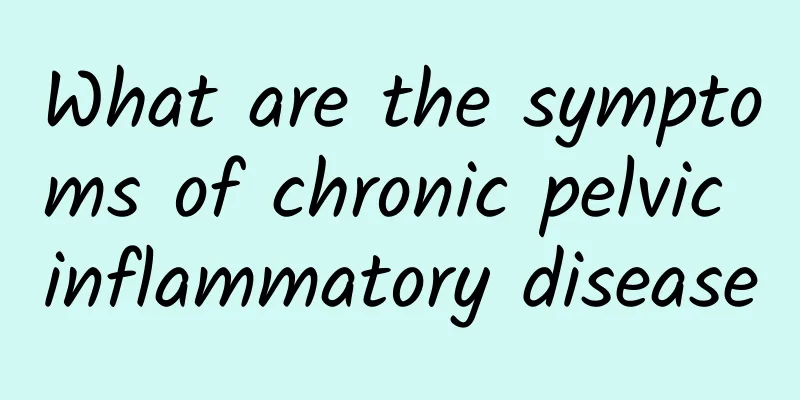Can you get pregnant with endometriosis?

|
Patients with endometriosis can get pregnant in some cases, but the possibility of pregnancy is often affected by the degree of the disease. Mild patients may not significantly affect fertility, while moderate and severe patients may cause infertility. Treatment includes drug intervention, surgical treatment and assisted reproductive technology. 1The impact of endometriosis on pregnancy Endometriosis refers to the appearance of endometrial tissue outside the uterine cavity, commonly in the ovaries, fallopian tubes, pelvic cavity and other parts. Ectopic endometrial tissue can cause chronic inflammation, scar formation and pelvic adhesions, affecting the patency of the fallopian tubes, ovarian ovulation and embryo implantation in the uterus, thereby reducing the chance of natural conception. If endometriosis is severe, ovarian reserve function may decline, fertility may be further impaired, and even infertility may occur. 2 How to improve your chances of pregnancy: therapeutic interventions 1. Drug treatment: Mild patients can use drugs to regulate hormone levels to relieve symptoms and protect fertility. For example, gonadotropin-releasing hormone (GnRH) agonists can inhibit the growth of ectopic endometrium and reduce the risk of recurrence. The second is progesterone drugs such as dienogest, which can reduce the activity of ectopic lesions and reduce inflammatory responses. The third is oral contraceptives, which are used to control symptoms and reduce endometrial recurrence in patients with mild cases. 2Surgical treatment: For patients with moderate to severe disease or infertility, minimally invasive laparoscopic surgery is effective and can be used to remove ectopic lesions, dredge fallopian tubes or relieve pelvic adhesions, increasing the possibility of pregnancy. However, surgery must be combined with a doctor's evaluation and attention should be paid to postoperative anti-recurrence treatment to protect reproductive function. 3 Assisted reproductive technology: For patients who have not been able to conceive successfully despite medication and surgery, assisted reproductive technology (ART) such as IVF may be a more appropriate choice. IVF avoids the interference of fallopian tube lesions through in vitro fertilization and is suitable for patients with severe ectopic disease or those who have not been pregnant after repeated treatment. 3. Self-management of lifestyle Adjusting diet and lifestyle can also help improve symptoms and pregnancy. Increasing the intake of foods rich in antioxidants such as dark green vegetables and blueberries, reducing the intake of high-fat foods, and maintaining moderate exercise can help improve symptoms. Minimizing mental stress and regulating the body and mind through yoga or meditation may also indirectly promote the chance of pregnancy. Patients with endometriosis still have hope of achieving pregnancy, but they need to take scientific intervention measures including medication, surgery and assisted reproductive methods in a timely manner, combined with healthy daily life management. It is recommended to work closely with a professional gynecologist to jointly develop a personalized treatment plan to optimize the chance of pregnancy. |
<<: What causes threatened miscarriage?
Recommend
Sleeping less than 5 hours and consuming the most calories
Past studies have shown that sleep affects daily ...
The harm of cervical erosion, hypertrophy and cyst
Cervical erosion, hypertrophy and cysts are commo...
Burn fat and relieve worries! Drink a cup of vitality tea on the day after delivery
Pregnancy and childbirth are supposed to be happy...
We need to understand the cause of vaginitis in advance
The incidence of vaginitis has been increasing in...
Introduction: Early symptoms and prevention of vulvar leukoplakia
What are the early symptoms of vulvar leukoplakia...
What are the symptoms of cervicitis?
Cervicitis can cause great harm to patients and a...
KO leg edema! Doing yoga "grinding wheat pose" is very effective
With many consecutive holidays, many people trave...
Will cervicitis affect pregnancy? If you have cervicitis, you should pay attention to these matters
Will cervicitis affect normal pregnancy in women?...
Symptoms of hyperprolactinemia
Hyperprolactinemia refers to a syndrome caused by...
How to prevent pelvic peritonitis
We all know that women's reproductive organs ...
This is the way to eat the thinnest! 7 principles to successfully reduce fat by half
For people who want to lose weight, what they car...
What should I pay attention to when I have vaginitis?
Female vaginitis is a common gynecological diseas...
How to prevent habitual miscarriage in early pregnancy? You need to pay attention to these aspects
Nowadays, more and more young couples or lovers h...
Ovarian cyst torsion compressing the uterus
Ovarian cyst torsion compressing the uterus is a ...
Detailed introduction to common methods of treating vulvar leukoplakia
Nowadays, vulvar leukoplakia is more and more com...









